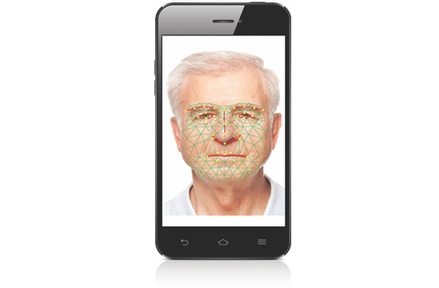AI face analysis app helps care workers detect pain in people with dementia
Care workers can make use of artificial intelligence (AI) to detect whether a person with dementia is feeling pain, thanks to a new app launched in the UK that can interpret facial muscle movements.

PainChek has been launched in the UK as the 'world's first intelligent pain assessment tool' that uses AI to alert care workers if someone is in pain and can be used on people with dementia, cognitive impairment and others receiving end of life care.
Using a smartphone camera, care workers can scan an individual’s face for a short period and PainChek uses facial recognition to automatically detect muscle movements that indicate pain.
Tracks 9 face muscles linked to pain
Peter Shergill, PainChek's UK and Ireland director, told carehome.co.uk: "Decades of research to identify the muscles of the face associated with pain has meant we can identify the nine muscles that identify with pain.
"The app tracks the movement of these nine muscles live for a period of time through the camera.
"Those micro-expressions are very difficult for someone to identify". Many people in care homes and others who live in their own homes, diagnosed with dementia, can struggle to communicate their level of pain to care workers.
The app can also help care workers make people as comfortable as possible in palliative care to give them 'a good death'. Mr Shergill said the app "gives people the care they need and reassures family members that their loved ones aren’t in pain."
Stops care workers 'overmedicating'
PainChek’s app has delivered pain assessment for care workers in 612 care homes across Australia and is conducting home care trials there to allow care workers to accurately assess pain.
The UK director said: "More then 95 per cent of care firms in Australia are using digital care software. Only about 35-40 per cent in England are using modern digital care software.
"We arrived in December 2019 and were due to launch in March at the Care Show but due to lockdown we had to delay the UK launch.
"Around 70 per cent of people in care homes have dementia and are in chronic pain and if that pain isn't identified they are not getting the care they need.
"When someone has an advanced form of dementia they won't recognise the people around them. The tool, gives care workers the confidence to give them the right treatment because they know the severity of pain the person is in and this stops them from over or under medicating.
"Families are also concerned if their loved one is in pain. The tool removes the subjective assessment and gives evidence of the level of pain a person is in."
Care workers also have a five-step checklist to help them assess pain that covers vocalisation, movement, physical changes, behavioural changes and changes in activity. The app gives care workers an overall pain score, which can be used to guide pain management.
The app has Class 1 medical device in Europe and is available on Apple and Google Play.
While the UK launch of the app for care homes goes ahead this week, Mr Shergill said phase two of PainChek's UK strategy will result in a launch to the UK home sector shortly.
For latest news click here
Latest News
 29-Jul-24
Dementia Bus gives carehome.co.uk staff insight into life with dementia
29-Jul-24
Dementia Bus gives carehome.co.uk staff insight into life with dementia
 01-Mar-24
Find out the top care homes in 2024
01-Mar-24
Find out the top care homes in 2024
 21-Mar-23
UK's top care homes in 2023 revealed
21-Mar-23
UK's top care homes in 2023 revealed
 03-Jan-23
carehome.co.uk launches free care helpline
03-Jan-23
carehome.co.uk launches free care helpline
 13-Dec-22
5 mins with Emily Whitehurst, chief operating officer for Constantia Healthcare
13-Dec-22
5 mins with Emily Whitehurst, chief operating officer for Constantia Healthcare